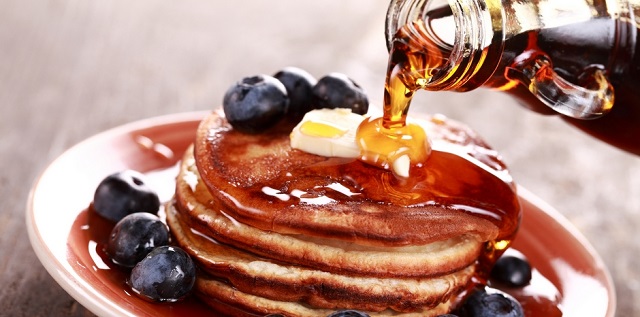The Sweet, Sweet Privilege of the Maple Syrup Federation
“Quebec is the Saudi Arabia of maple syrup.”
That’s the money quote from an exposé on the provincial maple syrup cartel.
Quebec’s maple syrup “marketing board” first made big news in 2012 when the culprits of an $18 million maple syrup heist (really) from the Global Strategic Maple Syrup Reserve (really) were caught by provincial police. (See the whole story in a feature film, coming soon, starring Jason Segel — …really.) The board is making news again thanks to recent crackdowns on producers who want to sell syrup outside its control.
Quebec’s maple syrup is managed by the Federation of Maple Syrup Producers, a legal cartel that has been given special privileges under provincial law — including the power to enforce a monopoly in syrup sales — since 1966. All syrup goes through the Federation, which withholds enough from the market to keep the price high, takes a 12% cut of sales, and then (eventually) passes the remainder on to producers.
This month, the Federation stationed security guards in several sugar shacks to ensure that producers don’t sell their own syrup because some of them have begun to fight back.
In defiance of the rules, [Angèle] Grenier exported hundreds of barrels of maple syrup to New Brunswick from 2002 through 2014 — just so she could collect the money she earned.
Last year she knew she was being watched. Her brother and her neighbour each brought a tractor. In under an hour, with three tractors, the team loaded 40 barrels of syrup on a truck.
“All the children came and we did it quick, quick,” she says. The truck sped off down her dirt road.
The federation has now shut down Grenier’s exports.
Last month Justice Clément Sampson of Superior Court in Ste-Joseph-de-Beauce wrote an order permitting “a sheriff to penetrate into the sugar shack of [Grenier], without notice, at any time judged reasonable and as frequently as they judge appropriate … to verify the inventory of maple syrup, take photos and videos of the locale and the inventory, and put a mark, a seal, a tag or any other necessary identifying label on every maple syrup container.”’
Advocates for the syrup quota say it’s needed because prices aren’t enough to keep supply stable for a crop with a harvest that fluctuates from year to year. But if bad seasons are the danger, what syrup producers need is insurance (or futures markets). That could be accomplished simply and cheaply by setting aside money, rather than warehouses full of syrup guarded by state-of-the-art security to prevent Mission Impossible-esque heists.
The marketing board doesn’t protect producers from a bad harvest. It protects big producers from consumers — from you, me, and our dollars that could tempt sellers to compete with them outside the system.
The Federation estimates that only 75% of producers support its fixed prices, but it has the legal power to strong-arm the 25% who don’t. Dissenting producers don’t — can’t — have the same rights under the law if it’s to be enforced. Without equal rights under the law, there cannot be secure rights to property.
One rebellious seller remarks that since he defied the Federation, “They can come into my house anytime they want.” Perhaps that’s why producers in Ontario and New Brunswick, who still benefit from the price supports, have declined to join Quebec’s Federation.
How did this happen? Quebec producers sought legal privileges for themselves by organizing into the Federation. Now that that privilege exists, it’s been seized not only by maple syrup producers, but by a specific contingent who benefit most from it. Special powers, once created, benefit the especially powerful.
The good news is that prices still work. High prices have tempted others to enter the market, and as a result Quebec’s share of global production has fallen from 78% ten years ago to 69% today. If the trend continues, the cartel may become unstable — or it may try to convince (or, failing that, force) others to join in the racket.
In the end, it’s not just those who love maple syrup on a warm stack of flapjacks or that sweet, messy maple taffy who lose out when Big Syrup gets special privileges. Rather, it’s the people who want to act and innovate without permission. Innovation is the great enemy of the status quo, and those who benefit from that status quo, like the Syrup Federation, know this. Their message is clear: conform, syrup slingers, or find yourself in a sticky situation.
Janet Neilson
Janet Neilson is a founding member and program developer for the Institute for Liberal Studies and a contract researcher in Ottawa, Ontario, Canada.


